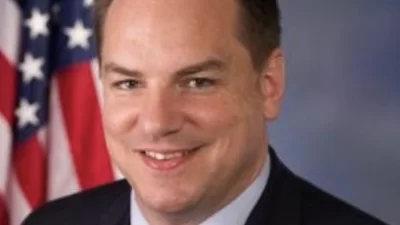Today, Rep. Carolyn B. Maloney, Chairwoman of the Committee on Oversight and Reform, shared with Committee Members a memo detailing findings from the Committee’s investigation ahead of a hearing examining the hostile workplace culture at the Washington Commanders and the National Football League’s (NFL) refusal to release the findings of an internal investigation into allegations of harassment and abuse. The Chairwoman also released transcripts of depositions and interviews conducted by the Committee with several former Washington Commanders employees.
The memo describes new evidence uncovered by the Committee that sheds light on team owner Dan Snyder’s role in creating a hostile work environment at the Commanders and his efforts to discredit victims and witnesses by launching a shadow investigation to influence the NFL’s internal investigation into workplace misconduct at the team. The memo also outlines new evidence showing the NFL and the Commanders, contrary to their public statements, failed to act independently while the internal investigation was ongoing.
The Committee launched its investigation into the toxic workplace at the Commanders and the NFL’s response in October 2021, following the League’s refusal to release the findings of the internal investigation led by D.C. attorney Beth Wilkinson. Over the past eight months, Committee staff reviewed thousands of documents, conducted interviews and depositions with former Commanders employees, and held a roundtable with victims and witnesses of misconduct.
Information obtained by the Committee illustrates the extent of Mr. Snyder’s role in creating a toxic workplace at the Commanders:
- Mr. Snyder’s former Chief Operating Officer, David Pauken, testified at a Committee deposition that when Mr. Snyder learned that a member of the team’s coaching staff had groped a public relations employee, Mr. Snyder refused to take action against the coach and instead directed that the victim “stay away from the coach.”
- Mr. Pauken explained that Mr. Snyder fired female employees who engaged in consensual relationships with male members of the team’s football operations. Describing one such situation, Mr. Pauken explained, “The female employees were fired, the male employee was—there were no repercussions other than he was restricted from additional sex with the cheerleaders.”
- A former long-time employee described how the team’s culture “glorified drinking and womanizing,” and recalled an instance when Mr. Snyder had pressured him to drink excessively. He explained that employees were afraid to speak out “because they had seen so many others lose their jobs.”
Evidence obtained by the Committee shows Dan Snyder launched a shadow investigation to discredit his accusers in the eyes of the NFL:
- Lawyers for Mr. Snyder used their shadow investigation to create a 100-slide dossier with private emails, text messages, telephone records, and social media posts from journalists, victims, and witnesses who had made credible public accusations of harassment against the Commanders.
- During the Wilkinson investigation, Mr. Snyder and his lawyers sent private investigators to the homes of former cheerleaders, offered hush money to try to dissuade them from cooperating with the investigation, and gathered thousands of emails from former Commanders President Bruce Allen in an effort to “demonstrate that Bruce Allen had created a toxic environment at the Washington Commanders.”
- Mr. Snyder’s lawyers had direct access to the NFL and the law firm conducting the investigation, and secretly shared information from their shadow investigation in an apparent attempt to influence the Wilkinson investigation.
The Committee also uncovered information that casts doubt on the NFL’s claim that the internal investigation into the toxic workplace at the Commanders was independent:
- The NFL initially allowed Mr. Snyder to investigate his own team, including his role in the toxic work environment, and only took over the investigation after multiple public reports revealed that Mr. Snyder was personally implicated in sexual misconduct.
- After the League took over the investigation, the NFL and the Commanders entered into a common interest agreement that gave Mr. Snyder a back-channel to make confidential presentations to the NFL and block the release of information.
- A retainer agreement between the NFL and the law firm handling the internal investigation established that a written report of the findings would be completed at the conclusion of the investigation, but NFL Commissioner Roger Goodell, in a break with previous practice, changed course and requested oral briefings instead, further ensuring the findings would not come to light.
The Committee obtained evidence that the NFL was aware of Mr. Snyder’s efforts to influence Ms. Wilkinson’s investigation and harass and intimidate witnesses through the use of private investigators and abusive subpoenas but failed to take meaningful action to prevent them. Ultimately, the NFL was briefed on the Wilkinson investigation’s findings 16 times—including at least two personal briefings for Mr. Goodell—but chose not to disclose the findings to the public.
Click here to read the memo.
Click here for key excerpts and a full transcript of the deposition with David Pauken.
Click here for key excerpts and a full transcript of the interview with Jason Friedman.
Click here for key excerpts and a full transcript of the interview with Abigail Dymond Welch.
Click here for key excerpts and a full transcript of the deposition with Brian Lafemina.
Original source can be found here.









